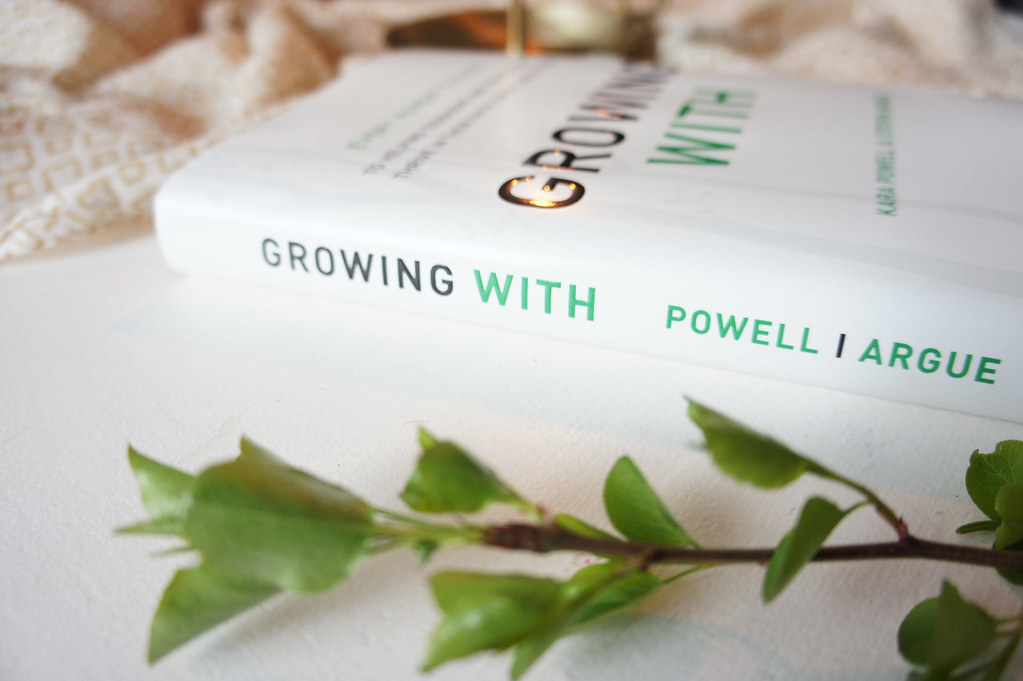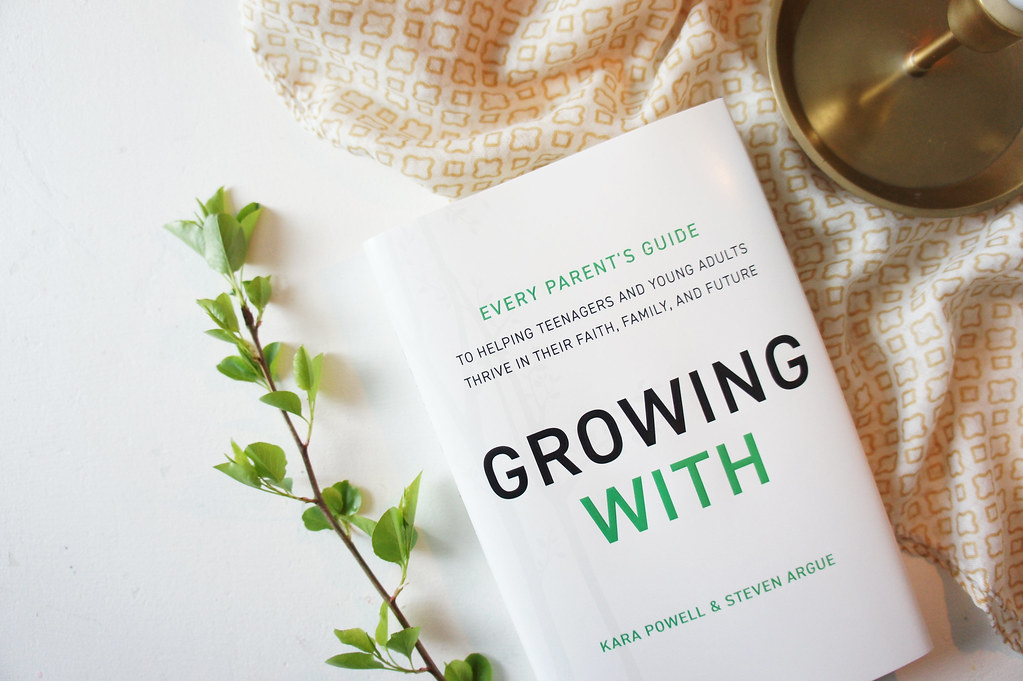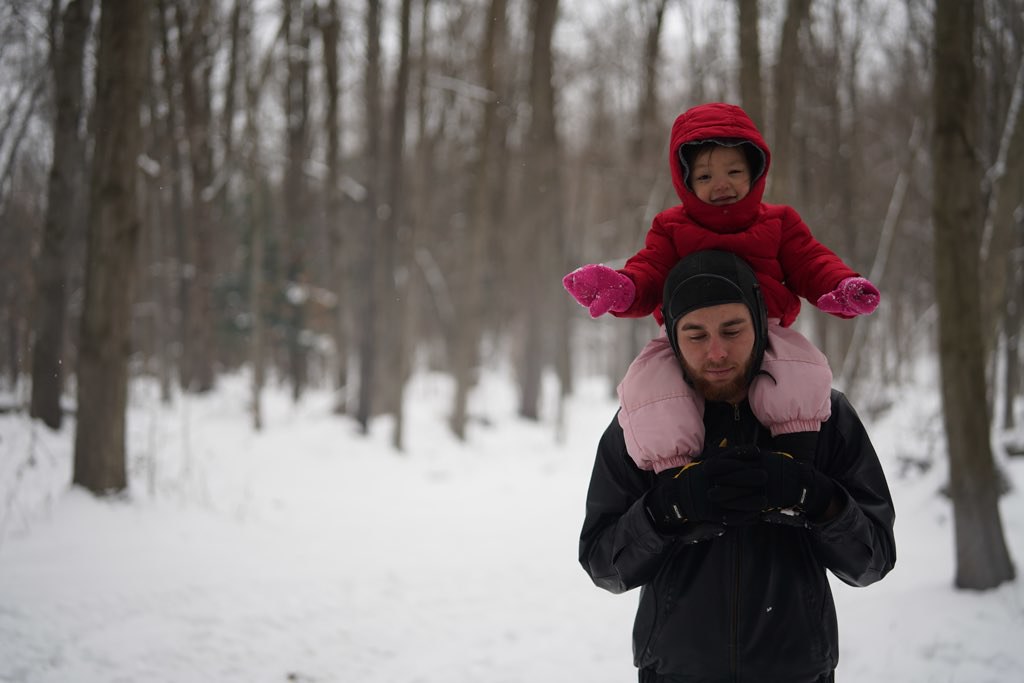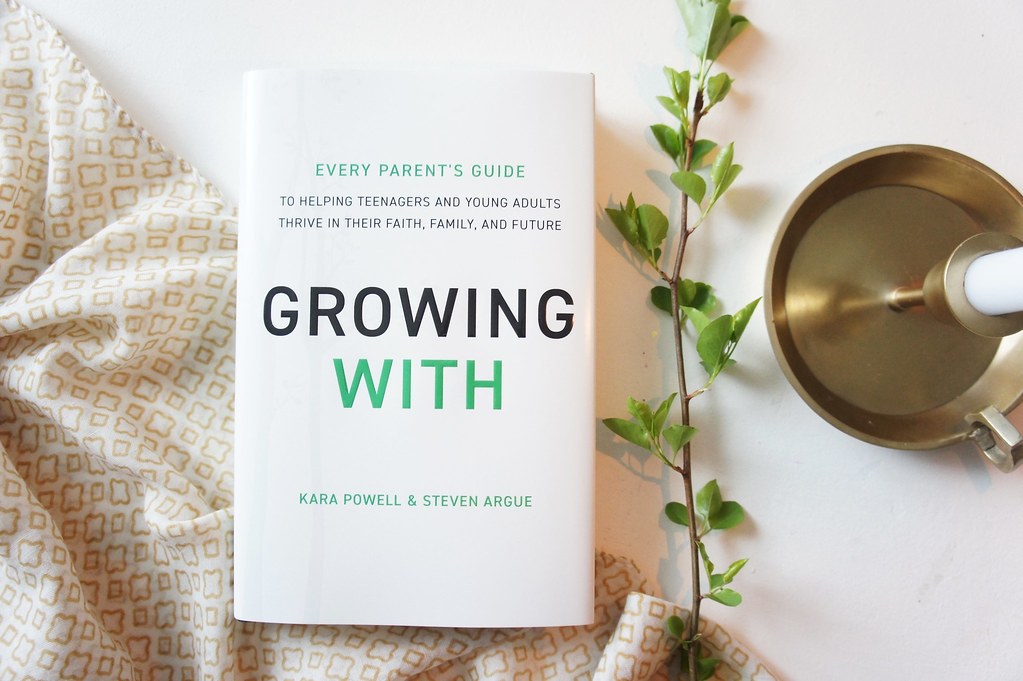As someone who wants to do more than guess in my parenting, I’m so grateful for Growing With, my new favorite parenting book by Kara Powell and Steve Argue. Kara and Steve are veteran church leaders and world-class researchers, but most of all, they are parents who find that growing with their teenagers and young adults (three kids each!) is one of their greatest joys and privileges. In the midst of all I juggle and wonder about as a parent, I love learning with and from these two, and no matter what ages your kids or grandkids, I know you will too. It’s an absolute joy to welcome them both to the farm’s front porch today…
guest post by Kara Powell and Steve Argue
“But I don’t want to ride with you. I want to keep riding with my cousins.”
Having quarantined myself for the first three days of our extended family vacation because of bronchitis, I (Kara) was finally feeling germ-free and asked our three kids to hop in our rental car.
Two did happily, but Krista wasn’t having it. With her arms crossed and her hazel eyes cool with determination, our 14-year-old bluntly told me and my husband that she liked riding with her cousins better than us.
I had a 3-Dpicture in my mind of what our family time was supposed to be like. Our daughter’s assertion of her independence—a normal and appropriate tendency for an eighth grader—was ripping that image into shreds.
On the drive to the beach without her, God reminded me of an image from psychologist Lisa Damour that has saved me as a mom. It weaves its way through our Growing With philosophy of parenting.
“Your daughter needs a wall to swim to, and she needs you to be a wall that can withstand her comings and goings.”
While this research-based insight is addressed to daughters, I’ve clung to these words for my son, too. Your kids and stepkids need you to be a consistent wall they can cling to.









As I found at the beach with Krista, sometimes when our independence-seeking children move away from us, they don’t just let go and drift; they kick off the wall.
And they kick hard.
So hard that it hurts, leaving us feeling cracked, dented, and leaky.
Motivated by either our anger or self-protection, it’s tempting to turn our backs on our kids when they turn their backs on us.
Instead of being a wall for our kids to return to, we put up walls that keep them away.
In the midst of our family time in a coastal paradise, everything in me wanted to punish Krista.
To shame her into getting in the backseat.
Or take away her phone as a consequence for her attitude.
Or verbally lash out at her so she understood how she had hurt me.
Or all of the above.
I’m sure that in my disappointment, traces of all those so-called parenting strategies seeped into my interactions with Krista.
But in the midst of my frustration, and even a few parental threats, I mentally repeated this mantra: Be a wall. Be a wall she can come back to. Be a wall. Be a wall she can come back to.
With two days left on the trip, Krista did come back. I can’t point to why it happened. There was no breakthrough conversation. No fantastic sunset walk along the beach or heartfelt apology.
Krista simply started to act like herself. Whatever thoughts and feelings had caused the rift between us seemed to disappear.
While Jesus is the ultimate “wall” we want our kids to cling to, during the ups and downs of our parenting, sometimes all we can do is cling to this phrase: Be a wall. Be a wall they can come back to.
We know what it’s like to fear our kids will one day kick away from us and never come back.
Like you, we have both lost sleep in the past, wondering if someday our teenagers and young adults won’t need us. Or even want to spend time with us.
But when your kids grow up, you don’t have to grow apart. You can grow with them.
You can take steps toward your teenager or young adult in a mutual journey of intentional growth that trusts God to transform your entire family.
This is parenting that changes you … and changes your kid.
And it can be fueled by three short words.
Tell me more.
In my (Steve’s) home, we hung a simple “Tell me more” sign to remind all who enter of one of our family mottos.
We chose this family mantra when our oldest was in high school and our youngest was in elementary school. In the midst of a society that is relentlessly self-focused, we wanted to fight for conversational momentum in our family. So we made the invitation explicit.
No matter how close you feel to your kids, you are probably getting an edited version of their lives. There’s likely so much more to your kid’s story, but fear of your lectures or your increased anxiety may prevent them from sharing.
Tell me more.
These three words help us be a wall for our maturing kids—whether they are clinging to us, edging away from us, or treading relational water a few (or more) feet away.
“Tell me more” helps us go deeper in talking about everything — from last night’s movie to our twentysomething’s new boyfriend.
“Tell me more” helps us navigate tense conversations. When discussions with our children about their curfew or post-college career options (or lack thereof) get heated, these three words help us work toward solutions instead of wallow in problems.
“Tell me more” might open up some conversational doors that are otherwise locked tight.
When our family’s busyness or our kids’ growing independence makes it easy to let walls grow between us, “Tell me more” tears down those barriers and instead helps us be a wall for our sons and daughters.
Growing up doesn’t mean we have to grow apart from our kids.
We can grow with them instead.
Kara Powell and Steve Argue team together at the Fuller Youth Institute and are both faculty members at Fuller Theological Seminary. Kara was named by Christianity Today as one of “50 Women to Watch” and is the author or coauthor of over 20 books, including Growing Young and The Sticky Faith Guide for Your Family. Steve serves on the board for the Association of Youth Ministry Educators and writes regularly on topics surrounding adolescence, emerging adulthood, faith, and spiritual struggle.
Thanks to Kara and Steve’s passion for young people, their research savvy, and their empathy for parents and grandparents, their landmark book, Growing With, is every parent’s best guide to helping 13- to 29-year-olds thrive in their faith, family, and future. Building on 10,000 hours of research, over 1,300 interviews and focus groups, and decades of world-class scholarship from the Fuller Youth Institute, Kara and Steve tackle your toughest questions about parenting today.
[ Our humble thanks to Baker for their partnership in today’s devotion ]










